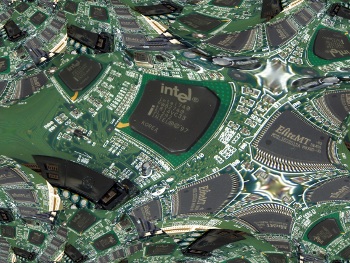Introduction to Applications of Python
By Bernd Klein. Last modified: 01 Feb 2022.
System Programming with Python
"System focused programming" might be the better term than "System Programming". System programming or systems programming means often only the activity of "programming system software", programs which are often part of the operating system. Our topics in this section of our online course deal with Pipes, Threads and Forks and starting and using shell commands and scripts from a Python script.
Python has various modules to support system focused programming.
The sys module is introduced in the first chapter. A focal point are the data streams (stdin, stdout, stderr) and redirections of streams.
The interaction between is the focus in the following chapter of our course.
The interaction between Python and the Linux Shell is another topic of our advanced section. This chapter is followed by Forks and Forking.
You can learn more about threads and threading in our Introduction to Threads. We show how to find the active IP addresses in a local network by using forks.
The chapter, which is subtitled as "Pipe, Pipes and '99 Bottles of Beer'" might be interesting to teetotallers as well, because it's not about alcohol but dealing with alcohol, even though the "99 bottles of beer" in the title give the impression. Instead, we show you how to write a program which is construing the famous American song "99 bottles of beer" by using forked processes and Pipes. So, if you need a good example of pipes and forks working together you will find it here.
Live Python training
Enjoying this page? We offer live Python training courses covering the content of this site.
Graph Theory

We have three chapters dealing with Graphs.
- A general introduction into the Graph theory and the corresponding Python code can be found in "Graphs in Python" You will also here the implementations of a graph class with essential functionalities for graph creation, manipulation and calculations.
Mathematics
- In our chapter on Polynomials we demonstrate how easily and beautifully a class for the creation and manipulation of polynomial functions can be written in Python.
Live Python training
Enjoying this page? We offer live Python training courses covering the content of this site.
Computer Science and Computer Linguistics
Finite State Machines are not only used in computer science but in natural language processing as well. We cover the concept of the Finite State Machine in great detail, so that even an amateur in Computer Science can understand the examples. At least we hope so.
Alan Turing's Turing Machines and above all the underlying theory is a must for every computer scientist. We show a simple implementation of a Turing Machine.
If you are interested in Classifying documents, the Introduction to Text Classification using Naive Bayes and our Python Implementation of Text Classification will be the right chapters for you.
Music
It's also possible to create scores with Python: You can find a complete working example in Creating Musical Scores With Python
If you feel that the above topics are too complicated or sophisticated for you, you might like our course for beginners in Python. You find a documented link list in the following lines:
Live Python training
Enjoying this page? We offer live Python training courses covering the content of this site.
Databases with Python
An introduction to using database interfaces in Python for SQL, MySQL and SQLite
"Games"
What you find are not real games! We show a recursive solution to Towers of Hanoi and a game Cows and Bulls better known in a commercial version called "Mastermind".
Live Python training
Enjoying this page? We offer live Python training courses covering the content of this site.
In this chapter
| Page | Description |
|---|---|
| 1. sys-Module | Introduction to the operating system interfaces of Python: sys module |
| 2. Python and the Shell | System Programming and shells under Python using the sys and the os Module. |
| 3. Forks and Forking | Introduction to Fork process and the forking of Processes in Python. |
| 4. Threads and Threading | Introduction to Threads and how to use them in Python |
| 5. Pipes in Python | Communication with Pipes in Python or how to sing 99 bottles of beer in Python |
| 6. Python Network Scanner | Tutorial on how to create a network scanner with Python |
| 7. Graph Theory and Graphs in Python | Using Graphs in Python: Implementing Graphs and underlying theory. |
| 8. Finite State Machine in Python | Introduction to Finite State Machines and a simple example implementation in Python |
| 9. Turing Machine in Python | Introduction to Turing Machines and implementation in Python |
| 10. Levenshtein Distance | A recursive iterative implementation of the Levenshtein distance or edit distance. |
| 11. Turkish Time and Clock | Using Python to translate numerical time repesentations like '10:14' into Turkish verbal repesentations. |
| 12. Towers of Hanoi | Python Program with a recursive function solving the towers of Hanoi game |
| 13. Mastermind / Bulls and Cows | Python Program with an implementation of the game Mastermind |
| 14. Python and SQL | Introduction in using SQL databases like MySQL SQLite with Python |
| 15. JSON and PYTHON | Introduction to using JSON with Python. reading and writing JSON files. |
| 16. Musical Scores With Python | Using Python and Lilypond to create music engravings |
| 17. Transforming Fibonacci Numbers into Music. | Creating automatically a piano score from a sequence of Fibonacci numbers with Python |
| 18. Snake in Python | Implementation of the 1976 game snake in Python |
| 19. Python Wordcloud Tutorial | Creating wordclouds with Python and the wordcloud modules. Wordclouds in special shapes |
